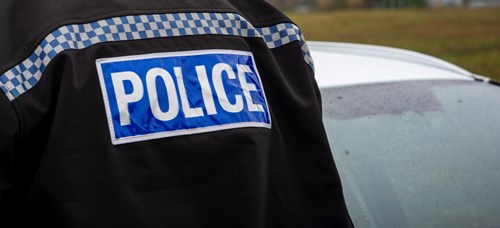Federation Chairman: A police covenant will be vital to protect officers and their families
21 May 2020

A new police covenant is ‘vital’ to protect police officers and their families from the impact of being on the frontline Norfolk Police Federation has said.
Plans to get protections for officers enshrined in law as part of a police covenant were announced by the Home Office back in February.
An eight-week consultation on how it might look, to which the PFEW has now formally responded, is nearing completion.
The PFEW says it wants mental health support and recognition for the difficult job officers do to be at the heart of any new legislature, a plea echoed by Norfolk Federation Chairman Andy Symonds.
“The Police Covenant is vital, and I hope and expect that it will standardise what police officers can expect in return from the force and in turn the Government,” he said.
“We expect officers to put their safety, be that physically or mentally, on the line to protect others from harm. Therefore it is only right that when sadly officers are injured on duty or sadly pay the ultimate sacrifice and are killed on duty that they and their family are looked after in terms of their physical and mental health.”
The last police covenant review took place in the 1960s, making it even more important to refresh it set against the challenges and dangers faced by modern officers.
Assaults on police officers and emergency service workers are increasing while many have suffered offensive attacks from people weaponising the COVID-19 virus.
Andy says he has seen first-hand the impact assaults can have.
“I’ve seen the devasting impact of violent assaults on officers I represent and some of these officers sadly will never work as a police officer ever again and need to be ill-health retired,” he said.
“This has a huge impact on their mental health as well as the physical injury they sustained while being violently attacked. It also has a financial impact which cannot be underestimated on the officer and their families.”
Locally the Federation provides packages and support for officers suffering from poor mental health and PTSD, although Andy recognises there is always more that policing could do.
“I facilitated and supported the introduction of a bespoke package for officers in Norfolk with severe mental health issues such as PTSD,” he said.
“This is in the form of treatment such as CBT, EMDR, among others as well as swift access to a Consultant Clinical Psychologist.
“However, there is more we as a service with the support and backing from the Government can do to support the many more officers who need help, treatment and support.
“Officers also have to deal with death on an almost daily basis. They attend road traffic collisions involving death and serious injuries; they have to deliver the worst messages to loved ones. Detectives have to review awful images of sexual abuse. These officers will appear physically fit but underneath some struggle mentally,” he added.
“These are unseen injuries which need to be dealt with before things become more difficult to deal with.”
Andy says any new protections arising from the covenant must be enactable and bold enough to address the issues it needs to.
“I’m pleased that our push for an introduction of a Policing Covenant is starting to come to fruition, but it is imperative that it has teeth and is something that transforms the support our officers receive for putting their physical and mental health at risk every day,” he said.
“It is not nice to have it is need to have. Nationally the cost of officers who are ill due to injuries sustained on duty cost the police service over £200m per year.
“It is possible to recoup this money by putting in place comprehensive support packages for officers to enable them to return to work at the earliest opportunity.”


















